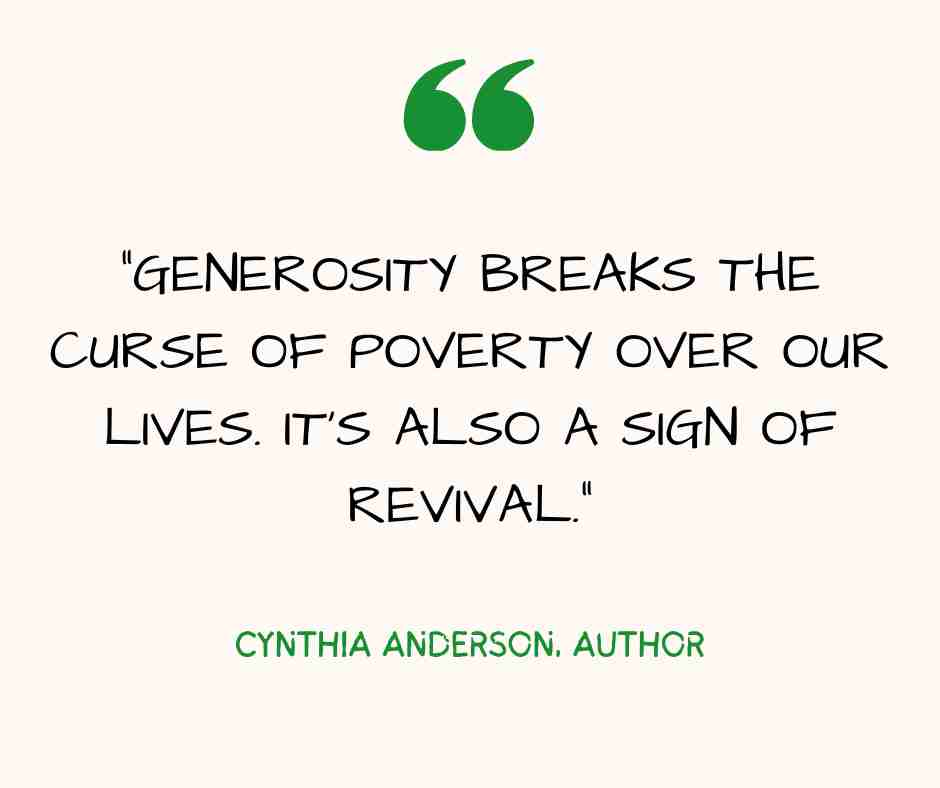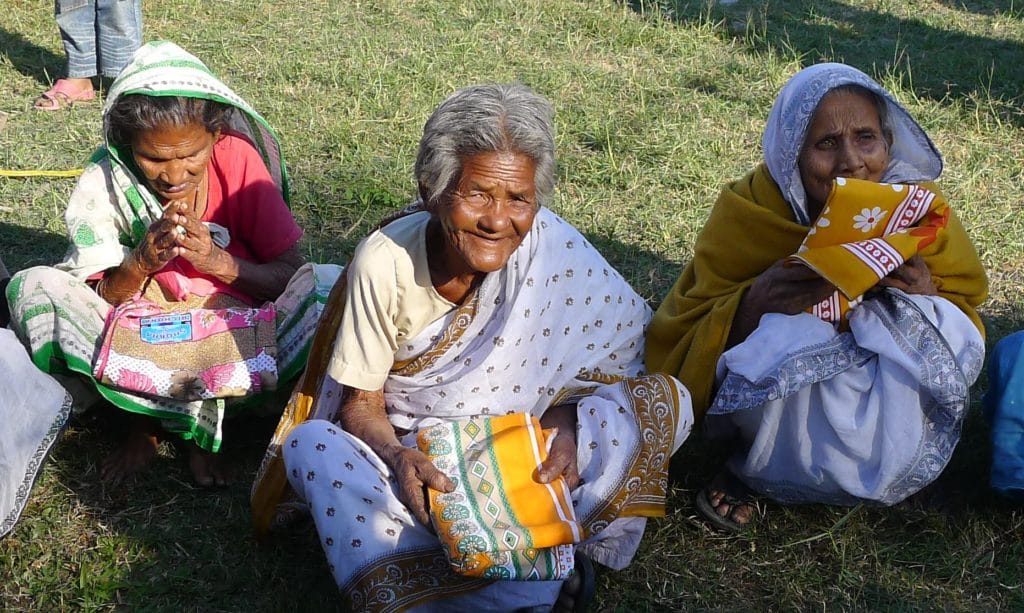We moved around the room silently. One person was given a watch. Graciously receiving it, he silently prayed. Should he keep it or pass it on to someone else? Another person turned to his neighbor, he gave him a newly purchased jacket. The power of generosity was being released in the room as we did a giving exercise.
Generosity breaks the curse of poverty over our lives. It’s also a sign of revival. We help new disciples be free from constant physical needs by training them to give to others.
In the early church, an unusual spirit of giving was evident. Though many early believers were not wealthy, they gave to the church (via the apostles) and to one another in what can only be described as extreme generosity.
“All the believers were together and had everything in common. They sold property and possessions to give to anyone who had
Acts 2:44-45need .”
What Does This Mean for Disciple-making Movements?
As groups of disciples form, they must be trained to practice regular giving. It is a command of Jesus, and is key to developing unity, love, and selflessness in a disciple’s life.
Some may associate the taking of offerings and tithes with traditional building churches. In DMMs, when the Discovery Bible Study or T4T groups transition from seeker groups into house churches, regular giving can also begin.

When Do You Start?
After people in the group have committed their lives to Christ, and have followed Him in water baptism, the group becomes a simple church. At that point, go through a Bible study or story where you teach about giving in the New Testament church. When in the course of the study the question, “What we will do to obey?” comes, you can suggest some form of regular giving.
It’s helpful in the early stages of giving to identify specific projects. Buy a drum or a floor mat for the group. Or you could organize an outreach and use the offering for bus fares so everyone can go together.
Consider giving toward projects to help the needy in your community. Some groups have purchased blankets for widows or school uniforms for orphans.

A house church in an Indian slum used offerings to give saris to the widows in their community
As the disciple-making groups learn both the joy and discipline of practicing generosity, the needs of the group members will also be met. The movement will have internally generated funds to use for training, outreach, and other needs. This is far better than raising external support for these things.
DMMs Can Send Out Missionaries
In Disciple-making and Church planting movements, because we’re planting rabbit, not elephant churches, when disciples are trained to give they can quickly support and send out missionaries or apostolic teams. DMM groups usually meet in homes and don’t need expensive buildings. They don’t need to pay full-time pastors. This means they are quickly able to contribute toward K
As a movement matures, they can become generous mission-sending movements. Five or ten home groups can easily partner to send out a full-time, cross-cultural worker among the unreached. A growing movement might easily sponsor and send twenty to thirty missionaries.
Does your movement encourage regular, generous giving each time the groups meet? Have you included teaching on tithes and offerings in your disciple-making lessons?
Build Trust
What do you do with offerings taken? Build trust through transparency, openness about the money, and visible projects everyone agrees to.
I would love to hear your questions or comments below, or on the Dmms Facebook group.




Comments
Good and much effective
I thank God for this message of God word from His servants of God to bless me with love of God Amen welcome
Thank you
May God bless you l read royal priesthood that we born anew into a dual authority that of prest and kingship
Good disciple making movement
Good Dmms
Thanks for this message, I am blessed going through it,
The power of generosity. I agreed with your point of view, it’s encourage love, togetherness, and bring us more closer
🙏🙏🙏🙏🙏🙏🙏
I’m pastor Danny from salvation church of god in Zambia
I will like to ask you to start the ministry here in Nigeria, Edo State if possible I will be in charge .
Several months ago, at a conference we were given goody bags. Chip Ingram’s The Genius of Generosity were in the bags. It is by far the best book I’ve seen on God being the owner of everything and we are His stewards/managers of all His things. I have stickers on my car and house saying, Warning, this house/car and everything in it belong to God. Act accordingly.
I wanted to buy a several copies to give away but found it was only available used or in an ebook format.
Author
Sounds like a great book! Too bad its not still available. Maybe time for a new book on the topic…
Cynthia, we would like to do the giving exercise you mention at the beginning of the article.
Do you tell everyone to bring something of value to the next house church gathering? How do you start it off?
Thanks for any tips you can give.
Stacy Kramer
1r@q
Author
Hey Stacy, so sorry for the delayed response due to vacation and then a family crisis. Were you able to do the exercise? It may be good to announce it before doing it so people are a bit prepared, but it can be done impromptu as well.
It was helpful
Buenas noches, cuando se trata de la palabra de Dios quiero ser parte
The message that Generoty breaks the spirit of poverty has blessed me